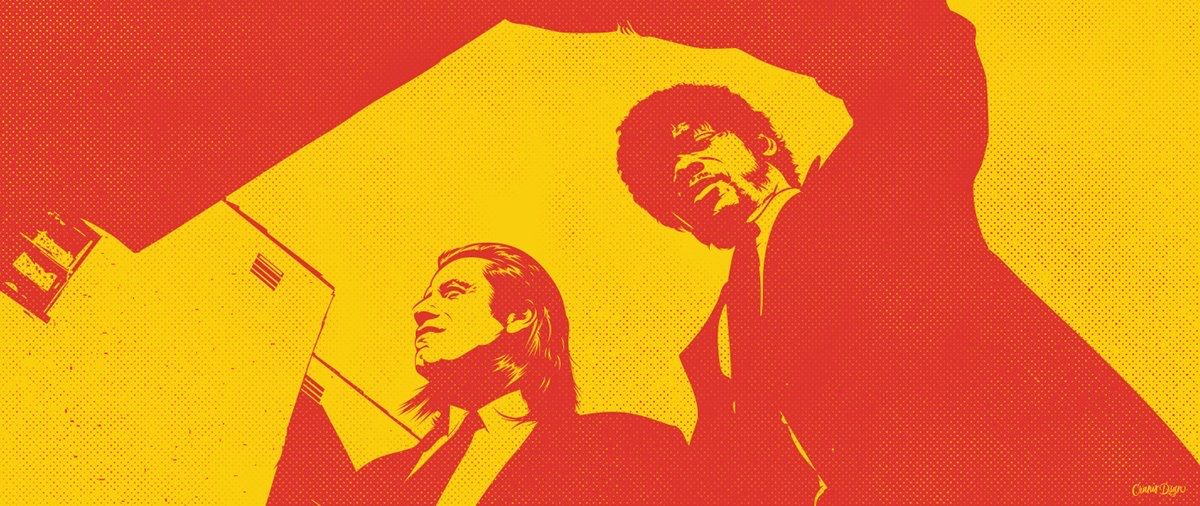Across 110th Street is a 1972 movie directed by Barry Shear.

WHAT HAPPENS?
A daring robbery pits rival mobs against each other, while two New York City detectives try to solve the case.
ONE LINE REVIEW
Across 110th Street is a raw, authentic crime movie that features several standout acting performances.
THE ACTORS
Anthony Quinn and Yaphet Kotto rightfully deserve tremendous praise as Captain Matelli and Lieutenant Pope. Quinn represents the dying breed of slash and burn policing while Kotto is the procedural, intellectual ideal. Their exchanges anchor the story. Both are terrific and offer layered performances that explore both human vulnerability and the social and racial divides that permanently alter us.

However, the movie features a rich blend of supporting actors that define the era’s gritty style. Richard Ward’s Doc Johnson is brilliant as a Harlem mob boss who is a defacto power broker for both the Italian mob and police. Doc’s command of his authority is marked by a permanent calm. He casually refers to the volatile Nick as a “punk errand boy” and laughs as Matelli pulls a gun on him. His legend is forever secured – his gravelly voice chews out the truth: “I’m Doc Motherfuckin’ Johnson.”
Anthony Franciosa portrays Nick, the Italian mobster tasked with finding the robbers. His vicious, almost psychopathic character nearly reaches an overblown level but Franciosa adds touches of realism for an intriguing balance. In a more dramatized setting, his character could achieve cult status. Yet, the most interesting performance belongs to Paul Benjamin’s Jim Harris. Harris is one of the robbers whose life is at a painful crossroads. His violent actions are both personal and come from a place of deep despair. In a movie full of extraordinary dialogue, he gives the most meaningful: “You’re looking at a 42-year old ex con n—- with a medical problem. Who would want me!?”

THE DIRECTOR
Shear creates the kind of authentic atmosphere that would dominate 1970s filmmaking. From the opening scene, we’re instantly connected to the city streets – literally as an up close shot chronicles footsteps. The action sequences are spontaneous, grimy bursts of energy and the exchanges among all characters continually personify a seedy underworld power. Despite the immoral nature and intents of his characters, Shear continually highlights a deep human vulnerability. Very few characters fit into this cold world – Benjamin’s Harris is an epileptic ex-con, Quinn’s Matelli is a relic, Kotto’s Pope straddles racial, cultural and professional lines – even Franciosa’s Nick feels the inadequacy arising from his family name.
THE BEST – The Music
The movie’s title says it all. While other 1970s movies featured catchier and thematic songs – particularly several Blaxploitation offerings – Across 110th Street boasts the most consistent, complete soundtrack of the time period.

THE BEST Part Two – The One Liners
Also known as the “Doc Motherfuckin’ Johnson” Award, here are some of the best exchanges:
Pope: “I’m Lieutenant Pope, meaning I’m in charge here.”
Matelli: “What do we do now that we’re 55? Eat shit?”
Doc: “It’s not smart for three Degos to go kill around here.”
Matelli: “Honey, would you cover your tits?”
Doc: “Crucifying is Wop shit.”
Doc to Matelli: “You like that nice, clean numbers money.”
Kotto to Doc: “You stick it (a bribe) up you ass.”
Doc to Matelli: “You don’t want to live.”
Nick: “You see any horns? We’re not animals. You’re going to make me feel very bad.”
THE BEST Part Three – The Antonio Fargas Role
Fargas seemed to make a living throughout the 1970s essentially playing a victim of the streets. Here, his Henry Jackson is easily caught as he throws around his share of the robbery money. Fargas is terrific as he plays a high roller before getting tortured by Nick and his goons.

THE BEST Part Four – The Clothes
Gilbert Lewis’ Shevvy takes the award for most stylish character. Gilbert’s character serves as Doc’s muscle and while he gives the role a sense of authentic danger, he does it in immaculate early 1970s style.
THE BEST Part Five – Gloria
Norma Donaldson’s Gloria plays the girlfriend of Benjamin’s Harris. While not given a ton of screen time, Donaldson easily conveys a sense of vulnerability and tenderness not seen in many other characters. Her scenes with Benjamin are among the movie’s best.
THE WORST – Timeliness
It’s beyond sad that fifty years later, the same issues of racial, cultural and class divides – along with simmering instances of police brutality – still define much of our cities and overall country. Through no fault of its own, the nearly permanent impact of Shear’s movie is how relatable it unfortunately remains.

THE BEST Part Five – Burt Young
You know you’re in for a great 70s movie when Burt Young pops up in the opening scene.
THE WORST Part Two – Father Matelli
Quinn’s Matelli character is a complex blend of emotions. On the surface, he’s a racist, aging and violent reminder of a time of (even more) unchecked police brutality. His methods are archaic and essentially chaotic and ineffective. However, the character maintains a connection to “his” community, as he knows most people brought into his precinct as potential suspects. Yet, what could be a positive trait more resembles his virtual “ownership” of black residents – a sort of paternal relationship that is a uniquely ugly American ethos.
FOX FORCE FIVE RATING – 4.5/5
Across 110th Street is an exceptional crime movie that reveals itself as an introspective look at the racial and social dynamics of distinctly different communities.
